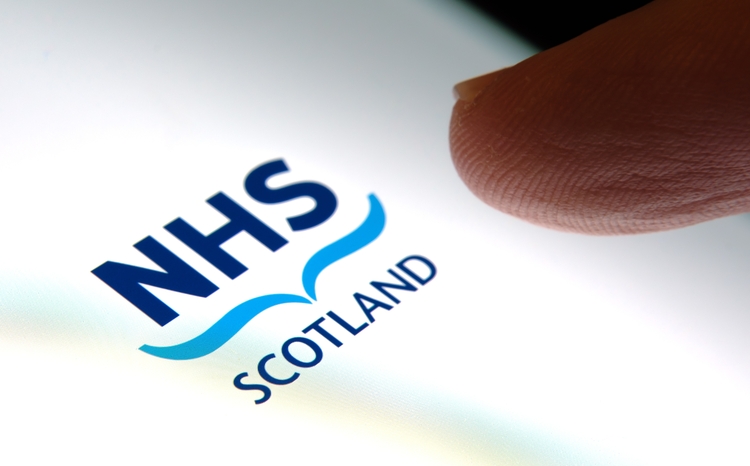Scottish MPs told criticism of GPASS ‘overblown’
- 12 June 2006
Criticism of the Scottish GP computer system GPASS is “overblown” and the system will serve NHS Scotland well in the future, the chief executive of NHS National Services Scotland has told Scottish MPs.
Stuart Bain told the Scottish Parliament’s Health Committee that there had been significant problems with GPASS which he said had been corrected but rejected criticism that the system was functionally not sound and should be abandoned.
He told the committee: “There is legitimate criticism, but it has been overblown. The new product that we are testing, GPASS Clinical, is excellent. It will serve the NHS in Scotland well for the future, just as GPASS has served it well for the past 26 years.”
Paul Gray, director of primary and community care for the Scottish Executive Health Department, told the health committee that GPASS remained “a critical part” of Scotland’s e-health strategy. He said that a recently commissioned report into primary care IT systems, due this month, was not about clinical functionality but a study on how systems such as GPASS ought to be managed in future in the context of the electronic health record.
He added: “At the moment, GPASS is run and managed by NHS National Services Scotland (NSS). We need to ask ourselves how that fits into a commercial environment in which there are at least four other main commercial competitors in the marketplace. That is not to say that we are predisposed to the idea that NHS NSS should or should not continue to run it, but we thought that the study was the appropriate point to address the issue.”
Bain told the committee that GPASS had done well in independent assessments alongside three or four of the other commercial suppliers to the NHS in Scotland.
He added: “The different systems that enable administration and clinical support to the GPs have been tested against that range of scenarios and then scored by the users—the GPs. GPASS has scored well in those tests. Indeed, in a recent test in Ayrshire and Arran it came second of the four systems, with a significantly high score.”
The chief executive of NSS claimed that some of the criticism leveled at GPASS by GPs related to old problems, such as a fault where a part of a patient’s record was substituted into another person’s record, which had been part of the debate at the Scottish Local medical Committee’s conference even though it had been fixed six months earlier.
He also said that part of the problem was that GPASS was carrying the blame for problems that lay with the IT infrastructure in terms of both the equipment that GPs used and in relation to the switch to thin client servers and a managed technical service which the NHS in Scotland was introducing.
Bain said that since only GPASS was currently being rolled out on that basis other systems such as EMIS and In Practice System’s Vision were not subject to the same difficulties.
He told MPs: “That means that GPASS is getting all the bad news although much of it—the vast majority of it—has nothing to do with the GPASS product: it concerns the revolution that we are attempting to bring about in the primary care environment.”
Bain also said the NHS in Scotland had to do a better job in communicating the difference between the two sets of problems to practices. He said so far 23 GPASS practices had been put onto the new managed server and the Scottish Executive hoped to have 100 practices on the system within three or four months.
The Health Committee, which was holding a single session on IT in Scotland, also heard that 35,000 electronic referrals and discharges are now being made via SCI Gateway every month and 60,000 records have been transferred through GPEX, the Scottish equivalent of GP2GP record transfer. The e-pharmacy initiative now handles 1 million electronic prescriptions from GPASS practices every year.
Bain added: “If one looks at the figures, there is a huge amount of evidence of success and progress on which to build. We are not complacent—we do not think that we have got everything right—but we have handled numerous successful transfers of records without any problems of patient confidentiality having surfaced.”
The chief executive of NSS also told the committee that GP2GP and GPEX work to common data standards and methodologies so that records will be able to be transferred around the whole UK, rather than just within Scotland or England.
The committee also heard about the Community Health Index (CHI) number, the unique patient identifier for people in Scotland which enables every interaction of a person with the health service to be tagged, so that the person’s record can be identified and traced.
The target was for the number to be universally used by June this year and Alastair Bishop, programme manager for CHI, told MPs that since work started in September last year universal access to the CHI has been achieved and in April this year 86% of key clinical documents—requests, referrals and letters—included a CHI number.
He told MPs that 100% use was currently not achievable since numbers are generated at birth or when a patient registers with a practice and not everyone was registered.
He added: “However, closing the gap between where we are and where we need to get to involves changing the attitudes of NHS staff in all the board areas. We must reach the point—which we are getting closer to—at which using CHI is standard practice and is the way by which people are identified throughout the health service. We have made significant progress towards achieving that objective since we started work in September, but we still have a way to go. That accounts for most of the gap.”
Related stories
Scottish LMCs vote for abolition of GPASS



